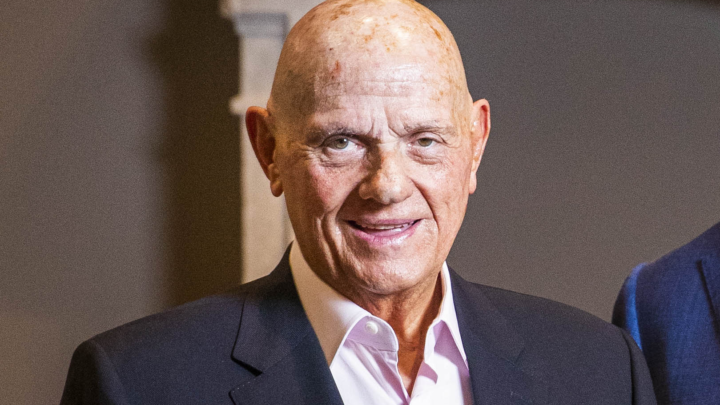The enigmatic Solomon Lew has everyone speculating about his intentions following the prospective split up of the Premier Retail businesses. Most punters think the move is about unlocking value in the businesses while pursuing growth via more focused entities. There is also a view that the breakup strategy could fund further acquisitions, including the Myer department store chain in which he has already built a substantial shareholding. Alternatively, the potential breakup could just be a c
st be a case of prudent estate planning given Lew is now 78 years of age and one of Australia’s wealthiest individuals.
Splitting up the businesses could foretell two very different forecasts on the future of retail: on the one hand, optimism, and on the other, risk reduction while cashing in on a couple of Premier Retail’s better trading years.
Premier Investments has commenced a formal review of the breakup option for its businesses following an exploratory examination, in which Lew and key executives analysed sales and profitability, capital deployment, growth prospects as well as global and domestic retail industry trends.
Following in the footsteps of Wesfarmers, Woolies
The successful divestment via listings of new entities on the Australian Securities Exchange of the Coles food and liquor business by Wesfarmers, and Endeavour Drinks by Woolworths, has no doubt encouraged the review.
Wesfarmers and Woolworths both unlocked value with their move and created focused entities that have realised growth since their listing as public companies.
However, as complex as they were, those two moves were more straightforward than a breakup of Premier Investments’ retail businesses.
Wesfarmers and Woolworths were both corporations with diverse shareholder ownership and were fundamentally retailers.
Premier Investments is quite different as a more vertically structured business with a more centralised ownership, with Lew directly controlling close to 50 per cent of the issued shares.
A key aspect of the review will be the tax implications of splitting up the businesses, an issue that has been at least one of the delaying factors in the mooted public float of Chemist Warehouse.
Therein lies the possibility that estate planning could be a factor in the breakup review, along with the other possibility of Lew’s son, Peter Lew, succeeding him at the controls of Premier Investments.
Peter Lew is a successful businessman in his own right with retail, property and financial services businesses through Lew Investment Group and the Brandbank group of companies, which include French Connection, Nine West and Seed, as well as homewares and sleepwear brand Fine Day, which has concession retail outlets in David Jones.
Impact of Murray’s departure
It is difficult to determine whether Premier’s review has been complicated or simplified by the resignation of Richard Murray two years into the role of CEO.
After a successful 18-year career at JB Hi-Fi, with seven as CEO, Murray has not blemished his resume in his short stint a Premier Retail, despite having no experience in apparel retailing.
Murray will leave Premier Investments on September 15, apparently in good graces with Lew and the board but without explanation of the reasons for his resignation.
The timing tends to infer that Murray was not keen on the breakup plan or didn’t see a suitable role for himself in the future.
John Bryce, Premier Investments’ CFO, has been named as interim CEO with a crucial role in the formal review.
A permanent CEO appointment is likely to be deferred until the breakup plan is confirmed or abandoned but that should not hamper the trading of the retail businesses which all have solid management and the backup of former Myer MD, Terry McCartney.
All about timing
Premier Investments has indicated the formal review will assess the company’s corporate, operating and capital structure, with a particular focus on Peter Alexander, Smiggle and the apparel brands (Just Jeans, Jay Jays, Portmans, Jacqui E and Dotti).
The increased scale of Premier Retail’s various businesses, and the substantial opportunities for each of them had prompted the breakup review.
The company has lifted its revenue from around $1.2 billion to $1.64 billion in the past five years, primarily on the success of Smiggle and Peter Alexander, albeit the apparel brands have improved their performance in the past two years.
With the apparel brands showing some momentum after years of underwhelming performances, the timing of a spinoff of that channel is opportune.
Peter Alexander’s sales have more than doubled from five years ago and the brand is now targeting larger formats and offshore expansion.
Smiggle has around 300 proprietary stores in Australia, New Zealand, Singapore, Malaysia, the United Kingdom and the Republic of Ireland as well as 350 wholesale accounts.
The review will consider a range of options, and will include an examination of Premier’s corporate, operating and capital structure, including dividend policies and the separation of the group’s businesses into two or more distinct entities via a demerger.
In an announcement to the Australian Securities Exchange, Premier Investments said the review will examine capital requirements, business plans, management structures, separation costs and any loss of current synergy benefits.
Premier Investments has appointed UBS and Arnold Bloch Leibler to advise it on the review and cautions that there is no certainty that there will be changes to the company.
Lew was on the lookout for potential acquisitions in 2021 but none have eventuated while creeping acquisition rules have increased his shareholding in Myer.
However, Lew has not attempted a takeover of the department store chain when its share price was among the penny dreadfuls, or for David Jones when the South African Woolworths offloaded it at what seemed a bargain price.
It seems unlikely that the current move is part of a new business acquisition plan at this point unless Peter Lew’s business interests are in the mix.

